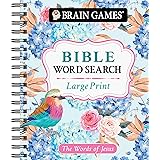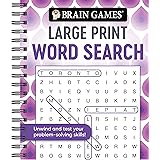The digital gaming landscape often feels straightforward: you click ‘buy,’ and the game is yours. However, as the video above highlights, nearly 100% of PC gamers interacting with platforms like Steam are engaging with a model that is less about ownership and more about licensing. This critical distinction was recently emphasized when Steam added a disclaimer during checkout, formally stating that purchases grant a revocable license, not perpetual ownership. It’s a “shady concept,” as mentioned, that many new PC gamers might not fully grasp, yet it profoundly impacts how we interact with our digital game libraries.
Understanding the nuances of digital game ownership is essential for every PC gamer. This isn’t just a legal technicality; it has real-world implications, as seen with the widely reported shutdown of games like The Crew, where purchased titles became unplayable. This article delves deeper into the intricacies of digital licenses, exploring why they exist, how they affect your rights, and what alternatives are available to truly own your digital games.
Deconstructing the Digital Game License: More Than Just a Purchase
When you click “buy” on a platform like Steam, you aren’t actually purchasing the game software itself. Instead, you are acquiring a license to play that game. This is akin to buying a ticket to a concert or a subscription to a service, rather than outright owning the music or the performance.
This licensing agreement is typically outlined in the End-User License Agreement (EULA), a lengthy document often skipped by users. Imagine if every physical game disc you bought came with a hidden clause that allowed the publisher to remotely disable it. This is the digital reality.
Furthermore, these licenses are almost always “revocable.” This means the platform provider, like Steam, reserves the right to terminate your access to a game at any time, for various reasons. While rare, events such as the game being delisted, the publisher ceasing to exist, or even a violation of terms of service could lead to your purchased game vanishing from your library.
The Case of The Crew: A Stark Reminder
The video briefly touches upon The Crew, and it serves as a powerful example of license revocation. After years on the market, Ubisoft decided to “sunset” The Crew, meaning the online servers were shut down, rendering the game unplayable even for those who had purchased it. This wasn’t due to a bug or a temporary outage; it was a permanent removal of access, illustrating the fragility of a revocable license.
In addition, this situation highlighted a core issue: if a game requires an online connection to verify ownership or access core features, its longevity is tied to the publisher’s support. It makes you wonder how many other online-only titles might face a similar fate in the future, potentially impacting your long-term digital game ownership.
The Role of DRM: Digital Rights Management
Digital Rights Management (DRM) is the technology used by publishers and platforms to control how you use your licensed software. It’s designed primarily to prevent piracy but often comes with significant implications for consumers.
Steam’s DRM, for example, typically requires an online connection for initial game activation and periodic checks. This ensures you have a valid license. However, it also means that if Steam’s servers are down, or if your internet connection fails, you might not be able to play certain games, even single-player ones you’ve “bought.”
Moreover, the presence of DRM can introduce technical hurdles, sometimes affecting game performance or compatibility with future operating systems. While DRM aims to protect creators, it often creates friction for legitimate players, raising ongoing debates about consumer rights versus corporate control over digital products.
GOG’s “Kill Shot”: A Different Approach to Digital Game Ownership
Against this backdrop, platforms like GOG (Good Old Games) offer a radically different philosophy for digital game ownership. As the video mentions, GOG intentionally moved to emphasize its DRM-free policy, especially after Steam’s updated disclaimer. This wasn’t just a marketing ploy; it highlighted a core value proposition.
When you purchase a game on GOG, you receive offline installers. These are executable files that allow you to install the game directly onto your computer without any required internet connection for activation or periodic checks. Imagine if every game you bought came with a permanent installation file that worked forever, regardless of platform changes or server shutdowns. This is what GOG provides.
The Power of Offline Installers and Preservation
The ability to download and store offline installers grants a significant degree of control and permanence to your digital game ownership. You can back up these installers to an external drive, ensuring that even if GOG were to disappear tomorrow, or if a game were delisted from their store, you would still possess the means to install and play it.
Furthermore, this approach directly addresses the issue of game preservation. Many classic titles that are no longer supported by their original publishers find a new lease on life on GOG, often with compatibility updates for modern systems. This ensures that gaming history remains accessible, a critical concern for many enthusiasts and historians.
Navigating Your Digital Library: Making Informed Choices
For new PC gamers especially, understanding these differences is crucial for building a resilient and accessible game library. While Steam offers an unparalleled selection and community features, it’s vital to remember the underlying licensing model.
Consider diversifying your purchases across platforms. For games you absolutely want to ensure access to long-term, particularly single-player experiences, GOG might be the preferred choice. For online multiplayer titles where server support is inherent to the experience, Steam remains a dominant and convenient option.
Ultimately, the choice comes down to personal priorities. Do you prioritize convenience and a vast library, or true digital game ownership and long-term preservation? Knowing the distinctions empowers you to make purchasing decisions that align with your values as a gamer. The world of digital game ownership is evolving, and staying informed is your best defense against unexpected disappearances from your cherished collection.









